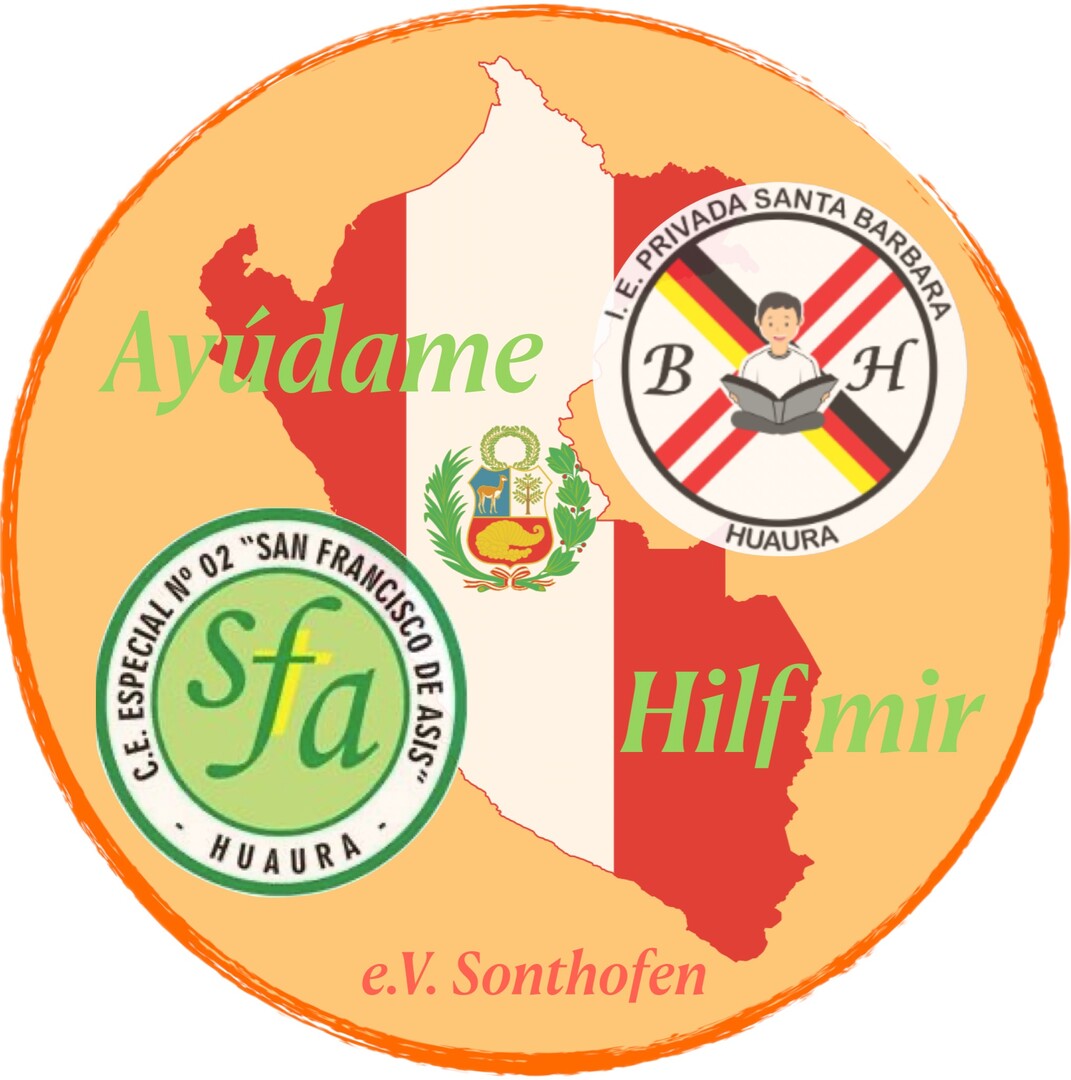Ayudame-Hilf mir e.V.

Östliche Alpenstraße 14
87527 Sonthofen
Alemania
Persona de contacto: Korbinian Kippes
Áreas temáticas
- Política / Proyecto de educación
- Política social/Discapacitados
- Ayudantes voluntarios serán bienvenidos.
Sobre nosotros
The association ‘Ayúdame – Hilf mir’ Sonthofen e.V. is a non-profit organisation and was founded on 17 June 2004 with 12 members.
It supports two projects in Huaura, Peru:
• The ‘San Francisco de Asís’ special school for children and young people with severe mental and multiple disabilities: Teaching at the ‘San Francisco’ school began in 1993, initially in a rented classroom, before construction of a separate school for children with learning and mental disabilities began in 1994. In agreement with the parents and teachers of the school, it was named ‘San Francisco de Asis’, the patron saint of the poor, who loved the disadvantaged most. The school was very well received, thanks in part to the teachers, some of whom came from Lima to teach in Huaura. Over the years, the number of pupils rose to 180. Many of the pupils were able to receive such good support at the school that they were able to return to a normal primary school and, in some cases, go on to secondary school. At that time, children were supported at the school from kindergarten age, then attended the 6-year primary school and subsequently completed the vocational stage. There, they were able to learn craft skills in various workshops, such as carpentry, and even breed animals such as guinea pigs. In Peru, these animals are not only kept as pets, but are also bred for food by many families. However, as part of a government inclusion project, many of the children from the San Francisco School were placed in regular primary schools, vocational training courses or with families. As a result, only children with severe and multiple disabilities are now taught at the San Francisco School. This requires a great deal of expertise, patience and empathy on the part of the teachers. In order to continue to provide the children at the school with the best possible support, in addition to lessons in small classes of 5-8 pupils, there are also additional therapy programmes in which the children can be supported in a variety of ways. Due to this reform in the education system, the workshops built by our association can no longer be used effectively by the most severely disabled children. They have therefore been handed over to a vocational school, which now accepts former pupils of the San Francisco School, among others. Nevertheless, the association continues to actively support the school and therefore covers part of the personnel costs, electricity and telephone costs, and the purchase of teaching materials. In addition, financial resources are also available to provide support in extreme emergencies.
• The inclusive primary school ‘Santa Barbara’: Due to various reforms in the Peruvian school system, it was no longer possible to teach children with learning difficulties, behavioural problems and from socially disadvantaged backgrounds at the San Francisco special school. For this reason, the Peruvian association ‘Santa Barbara’ founded a new private primary school in 2007, which was named ‘Santa Barbara’ at the request of the local teachers. The aim of the school is to provide the children with as much individual support as possible in small classes with a maximum of 20 children and to respond to their personal needs and learning speeds. In particular, two places in each class are reserved for children with physical or mental disabilities or learning difficulties. However, due to the high demand for this type of education and teaching, the premises soon became too small again and classrooms had to be added. In addition, parents and teachers at the primary school wanted to open a nursery school in addition to the school in order to prepare children from socially disadvantaged families in particular for their entry into primary school. Since then, children in classes of up to 25, divided into 3, 4 and 5-year-olds, have been receiving preschool education, in which basic skills such as reading, writing and counting are already being taught. The children are taught by a kindergarten teacher, who, like primary school teachers in Peru, must study for five years at university, as well as an assistant or a German volunteer. The building also has a small playground where the children can spend their break time.
In primary school, in addition to maths and communication lessons (which correspond to German lessons in German schools), the children also have social studies, science, art, music, English, sports and dance lessons.
The Maria Heimsuchung parish in Sonthofen and the Herz-Jesu parish in Nattheim support the association's projects in Peru.
Upon request, we can provide advice to other network participants, give presentations, and share current specialist information and contacts in our field of work.